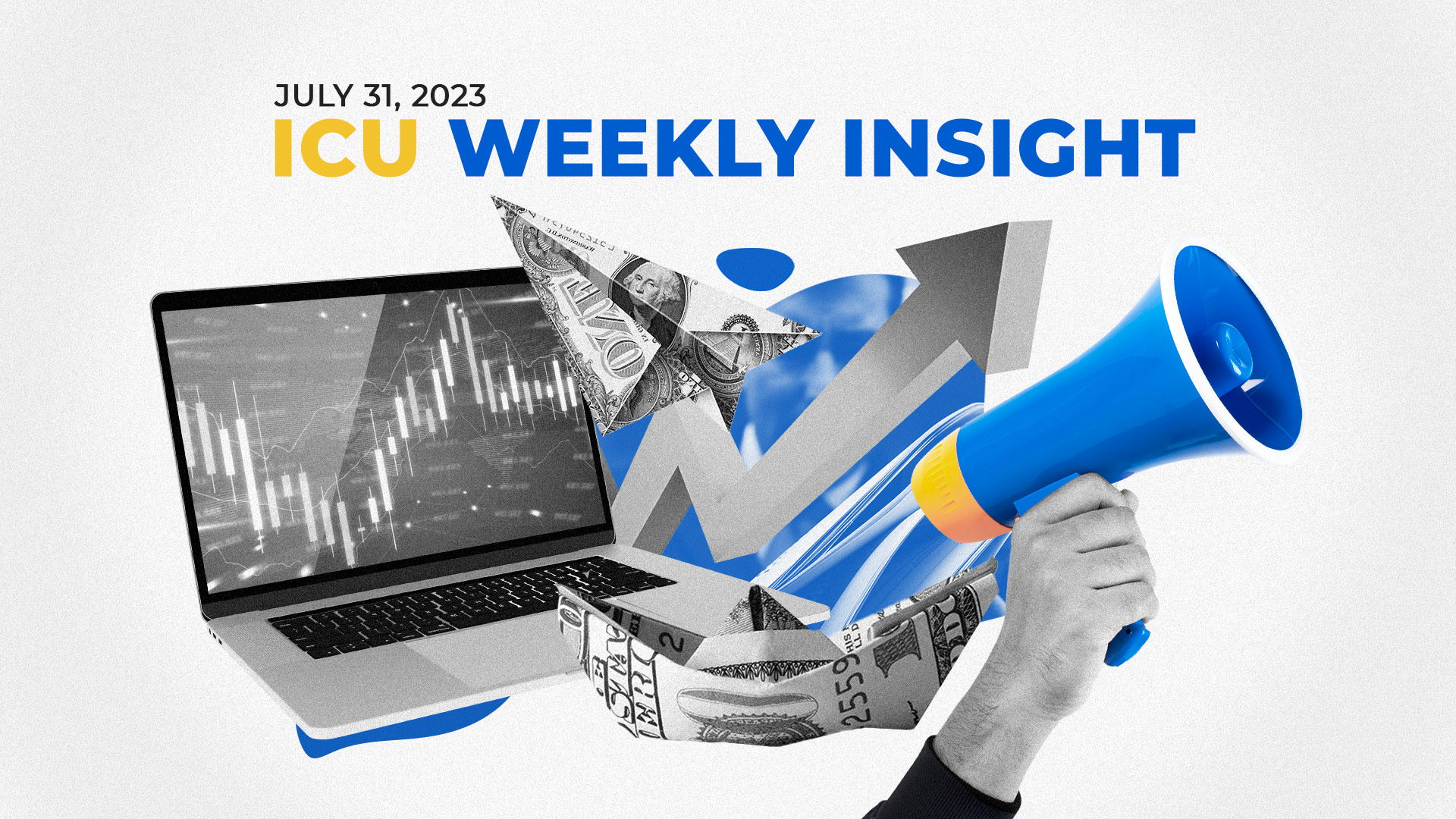Bonds: Debt refinancing improves in July
In July, the MoF elevated UAH borrowings and the debt refinancing price was as much as 143% in 7M23. The refinancing stage of FX-denominated debt barely declined.
The MoF borrowed UAH30.7bn (US$840m) in native forex, which is greater than the month-to-month borrowings throughout February‒June. In the meantime, redemptions in July had been among the many lowest this yr, simply UAH12.8bn (US$350m). An enormous distinction between redemptions and new borrowings allowed the MoF to extend the refinancing price to 143% in 7M23 or by 10pp in contrast with 1H23 outcomes.
The MoF refinanced simply 77% of USD-denominated redemptions in July, reducing the refinancing price to 106% in 7M23 or by 5pp in contrast with 1H23.
The refinancing price in euros didn’t change in July, as there have been no redemptions or borrowings in European forex.
ICU view: The refinancing price stays above 100% and improved in July. Because the NBU began the rate-cutting cycle (see remark under), the MoF will use any alternative to lower rates of interest for UAH bonds. The prospect of an extra discount in the important thing coverage price may even incentivize traders to purchase extra UAH-denominated authorities bonds within the coming months to lock in excessive yields for longer. Subsequently, the demand for local-currency securities could enhance and shift to bonds with an extended maturity, thus permitting the MoF to keep up a excessive stage of UAH debt refinancing within the coming months. To maintain the FX-denominated debt refinancing above 100%, the Ministry of Finance may also supply USD-denominated payments throughout August to create a reserve for repayments scheduled for September‒December this yr.
Bonds: Eurobonds costs up once more
Ukrainian Eurobonds costs rose final week, persevering with the rally that began in the midst of the month.
Final week, USD-denominated Ukrainian Eurobond costs added a mean 5%, shifting to 30‒34 cents per greenback. The vary of costs for devices with completely different maturities tightened to six.2% from 8.8%.
VRI costs rose by 8% final week to 49 cents per greenback of notional worth, which is above their worth previous to the russian full-scale invasion in February 2022.
ICU view: Final week’s key financial information was that the NBU began the rate-cutting cycle (see remark under), giving a optimistic sign to the market that macro dangers for Ukraine subsided considerably. This was additionally mirrored within the up to date NBU forecast, the place the expectations improved for GDP progress (to 2.9% from 2% within the prior forecast), inflation (to eight.7% from 12.5% beforehand) and worldwide reserves (from USD34.5bn to USD38.3bn). The optimistic messages from the NBU in all probability gave a brand new impetus for Eurobond costs.
FX: Speculative sentiment settles on FX market
Money hryvnia weakened final week, however this weakening will probably be short-lived.
On the money FX market, the hryvnia change price weakened by 1.2% to UAH37.0‒37.8/US$ on common in systemically essential banks. Households bought extra onerous forex than they bought for the primary time for the reason that starting of June.
On the interbank FX market, financial institution shoppers (authorized entities) bought onerous forex for US$94m lower than they bought, and the NBU decreased the weekly quantity of its interventions by 41% to US$350m.
ICU view: Usually, the scenario within the FX market has not modified considerably. Households’ curiosity in buying onerous forex for three-month deposits has stayed almost unchanged. The rise in money hard-currency purchases was situational, which precipitated the money change price to see fluctuations which might be prone to be short-lived. The interbank market partially recovered after russia disrupted the grain deal, requiring much less NBU intervention.
Economics: NBU begins the rate-cutting cycle
After enduring greater than a yr with a hefty financial coverage price of 25%, the regulator has made its first transfer and lower the important thing price to 22%. It has lowered the rate of interest on its in a single day deposit certificates (CDs) by 200bps to 18% whereas the prevailing three-month CDs will hold their 25% price.
The regulator is planning to ship a 200bps lower in September and two 100bps cuts in October and December.
ICU view: The NBU stays very conservative on financial coverage, partially attributable to its earlier outlooks of the CPI that they noticed to be a lot larger than the precise figures. Subsequently, it saved the 25% price for an extended interval, regardless of falling inflation. Though the brand new macro forecast from the NBU states a big discount in inflation that is because of attain single digits in 2024, the regulator sees many threats that might stop this. Safety considerations is among the key elements alongside the potential danger of worldwide assist discount, electrical energy shortages, and impediments for export.
Subsequently, we don’t count on a big price lower to comply with in 2024, with the important thing price prone to attain 16% by the tip of that yr.
Economics: Ukraine’s public debt up 2.5% in June
Ukraine’s public debt elevated 2.5% in US$ phrases in June to US$128.8bn.
Debt is up 15.6% in 1H23. In Could, progress in debt was primarily pushed by a brand new EUR1.5bn tranche of the EU Macro-Monetary Help facility and a second tranche of the IMF mortgage for US$0.9bn.
ICU view: Ukraine’s public debt is ready to develop quick over the following couple of years on influx of concessional debt from Ukraine’s allies. We count on public debt-to-GDP to strategy 90% by the tip of 2023, up from 78.5% on the finish of 2022. Nevertheless, the excessive stage of debt doesn’t result in important liquidity pressures in the meanwhile for the reason that present rollover of home debt is above 100% and cost schedule for exterior debt is benign due to restructurings that Ukraine managed to safe for the reason that begin of the full-fledged conflict.
Analysis staff: Vitaliy Vavryshchuk, Alexander Martynenko, Taras Kotovych, Mykhaylo Demkiv.
See the total report right here.
